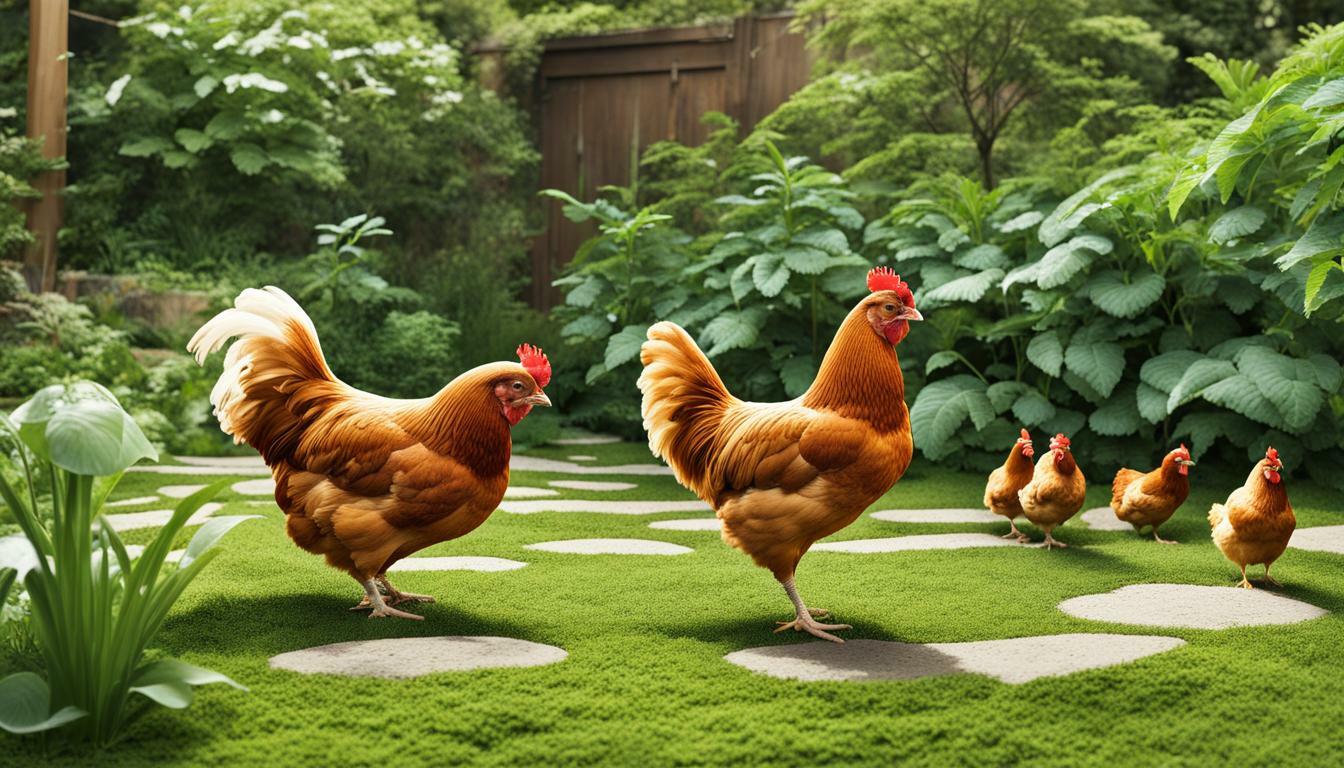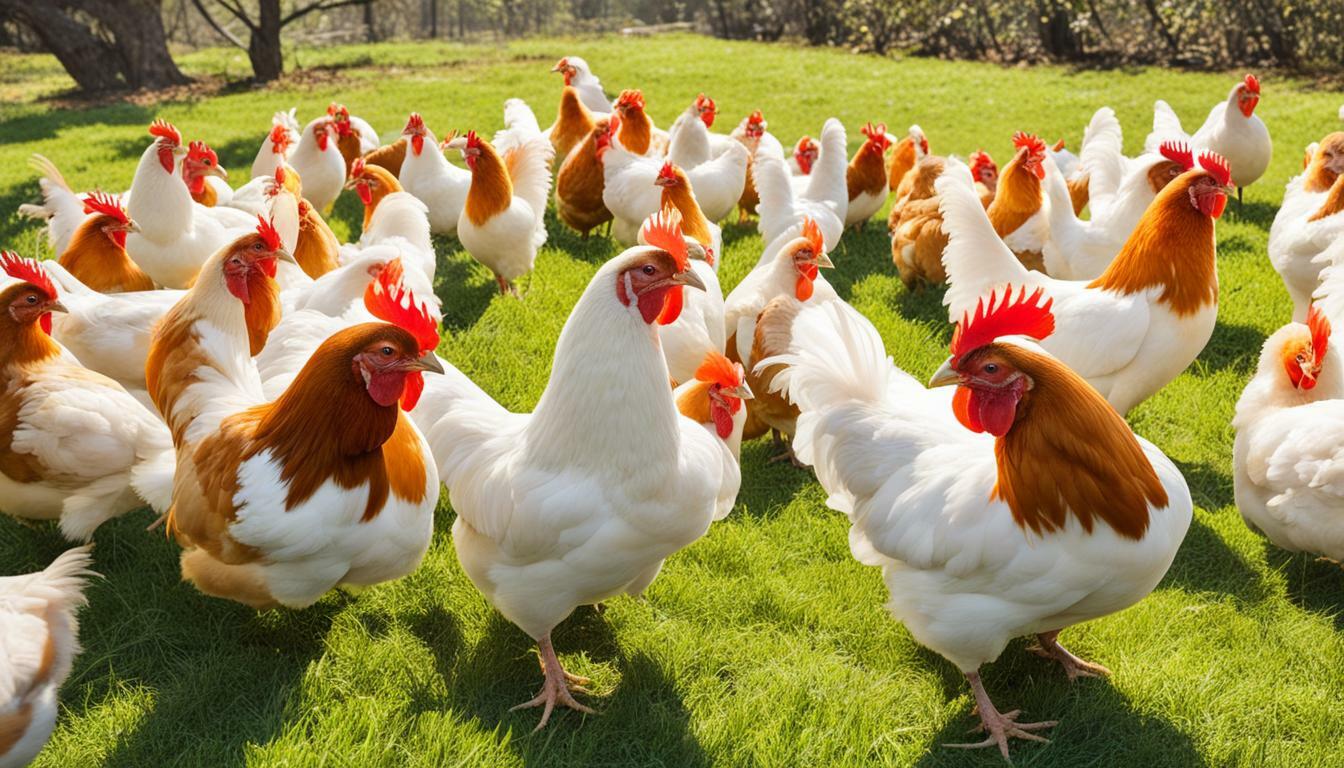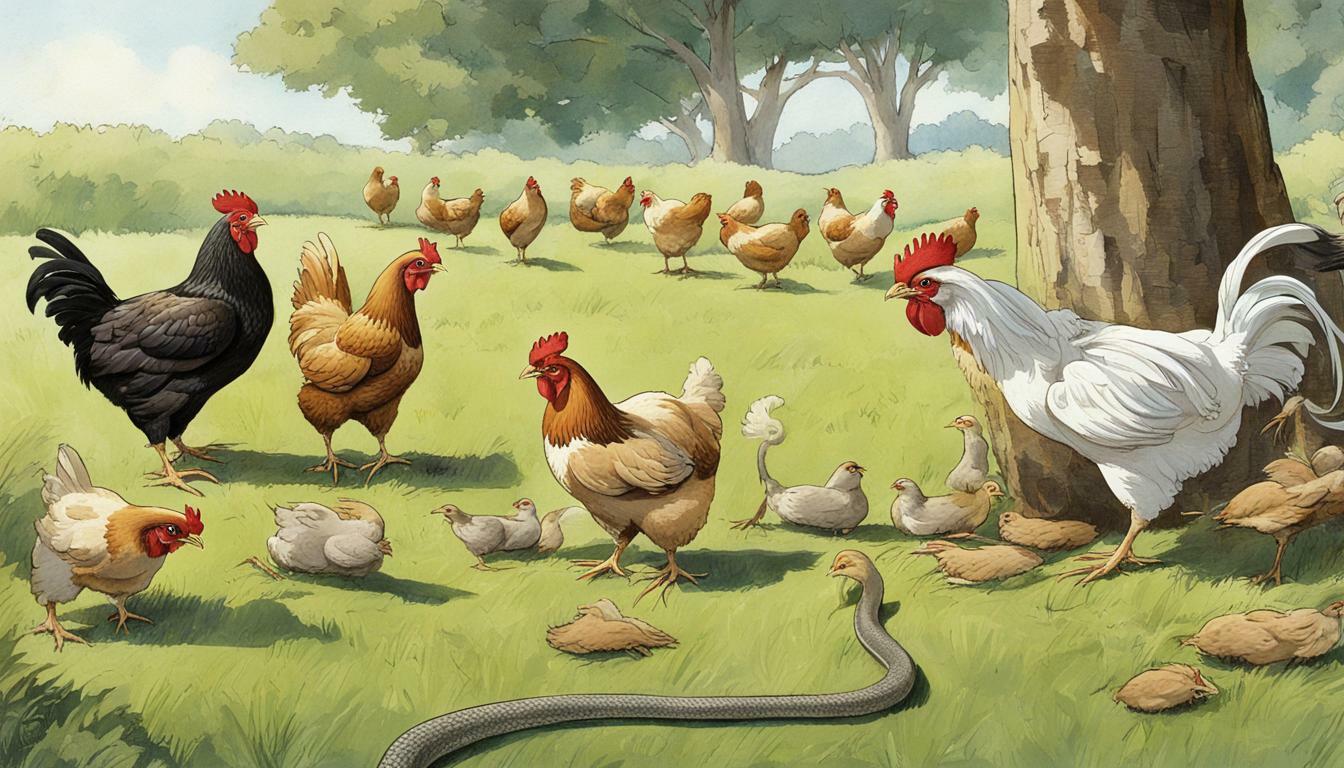Can Chickens Eat Tea Leaves? Find Out in Our Guide

Table of content:
- What Kinds of Tea Leaves Can Chickens Eat?
- Do Chickens Like Eating Tea Leaves?
- Are Tea Leaves Safe for Chickens to Eat?
- What Nutrients Do Chickens Get From Tea Leaves?
- Is Tea Good for Chicken Health?
- How Often Can I Feed Chickens Tea Leaves?
- Can Too Many Tea Leaves Make Chickens Sick?
- Should I Give My Chickens Tea Leaves?
- Tips for Feeding Chickens Tea Leaves
- Can Tea Leaves Be Used for Compost?
- Final Thoughts on Feeding Chickens Tea Leaves
Tea leaves contain many beneficial compounds and antioxidants. This has led some chicken owners to wonder – can chickens eat tea leaves?
The short answer is yes, chickens can eat both used and unused tea leaves in moderation. Tea leaves provide chickens with nutrients and compounds that support their health. However, tea leaves do contain tannins and caffeine that can cause issues if consumed in excess.
Below we’ll explore the benefits and potential risks of feeding chickens tea leaves to help you make an informed decision for your flock.
What Kinds of Tea Leaves Can Chickens Eat?
Chickens can safely eat most types of tea leaves including:
- Black tea – Popular varieties like English Breakfast and Earl Grey.
- Green tea – Such as Sencha and Matcha.
- White tea – Silver Needle or White Peony.
- Oolong tea.
- Herbal teas – Chamomile, rooibos, hibiscus, and yerba mate.
Avoid giving chickens tea leaves from teas that contain oils, like bergamot in Earl Grey. The oils can be toxic to chickens.
Both fresh and used tea bags or loose leaf tea are fine for chickens to consume. The used leaves may retain fewer nutrients but are still beneficial.
Do Chickens Like Eating Tea Leaves?
Chickens are omnivores and appreciate diverse foods. The aromatic qualities and textures of tea leaves make them attractive to chickens.
To test if your flock enjoys them, put a small handful of torn up tea leaves in their feeder and see if they get gobbled up quickly. You can also scatter a few leaves in their coop or run.
Watching your chickens’ reactions will tell you if tea leaves should become a regular treat. Chickens that rush to eat them are giving a clear “yes” to this healthy snack.
Are Tea Leaves Safe for Chickens to Eat?
When fed in moderation, the majority of tea leaves are safely edible for chickens. Here are some of the main considerations regarding risks:
- Tannins – All teas contain tannins, which can prevent nutrient absorption if consumed in very high amounts. Moderation is key.
- Caffeine – While chickens can tolerate more caffeine than humans, excess amounts could cause issues. Limit their tea intake.
- Pesticides – Non-organic tea may contain pesticide residues. This is especially true for green and white teas. Choose organic when possible.
- Mold – Old or damp tea leaves could grow mold. Don’t feed chickens any moldy leaves.
- Essential oils – Oils like bergamot in Earl Grey can be toxic. Avoid flavored teas.
As long as you pay attention to quality and amounts, tea leaves are a safe supplement to a chicken’s diet.
What Nutrients Do Chickens Get From Tea Leaves?
Dried tea leaves provide some valuable vitamins, minerals, antioxidants, and amino acids for chickens including:
- Protein – Tea contains 15-20% protein by dry weight.
- Theanine – An amino acid that may promote brain health.
- Antioxidants – Tea has polyphenol antioxidants like EGCG that combat free radicals.
- Flavonoids – Plant compounds that reduce inflammation.
- Minerals – Like manganese, potassium, magnesium, and zinc. Improves mineral absorption.
- Caffeine – In moderation, may boost energy and alertness.
- Prebiotics – Fiber that feeds healthy gut flora.
These nutrients contribute to overall wellness and also benefit egg quality and production.
Is Tea Good for Chicken Health?
The unique compounds in tea leaves deliver a variety of health benefits for chickens when supplemented in moderation, including:
- Supports Immune System – Antioxidants like EGCG protect against bacteria and viruses.
- Boosts Respiratory Health – The theaflavin in black tea is antimicrobial and reduces respiratory infections.
- Promotes Digestion – Caffeine encourages crop emptying. Tannins have anti-diarrheal effects. Fiber promotes healthy gut bacteria.
- Increases Calcium Absorption – The flavonoids in tea enhance calcium absorption for strong bones.
- Improves Egg Quality – Antioxidants like carotenoids transfer to yolks. Prebiotics improve nutrient absorption.
The bioactive compounds in tea leaves make them a great occasional treat for supporting overall chicken health and productivity.
How Often Can I Feed Chickens Tea Leaves?
Tea leaves should be fed in moderation as too much could cause health issues. Here are some feeding frequency guidelines:
- Limit treats like tea leaves to 2-3 times per week maximum.
- 1-2 leaves per chicken is perfect for a daily treat.
- Up to a small handful (1 oz) per chicken 2-3 times a week.
- For stronger flavored teas like matcha, reduce frequency and amount.
- Remove any uneaten leaves within 24 hours to prevent spoilage.
- Avoid feeding tea leaves daily or free choice as overconsumption could cause toxicity.
Monitor your flock’s interest level and health on this feeding schedule. Adjust as needed if any issues arise.
Can Too Many Tea Leaves Make Chickens Sick?
While nutritious in moderation, excessive amounts of tea leaves can negatively impact chickens’ health:
- Tannin toxicity – High tannin levels can prevent nutrient absorption and cause toxicity.
- Caffeine poisoning – Chickens are sensitive to excess caffeine, which could be fatal.
- Crop impaction – Large amounts of dry leaves may compact in the crop.
- Dehydration – The caffeine in tea has a diuretic effect.
- Vitamin deficiency – Tannins interfere with absorption of vitamins A, B, D, E and K.
- Mineral depletion – High oxalic acid content depletes calcium levels.
Start by feeding small amounts of tea and slowly increase based on your flock’s tolerance. Discontinue use if any concerning symptoms arise.
Should I Give My Chickens Tea Leaves?
Tea leaves can be a nutritious supplement for chickens when fed properly. Here are some benefits of adding tea leaves to your chickens’ diet:
- Provides varied nutrients and plant compounds.
- Excellent source of digestible protein, amino acids, and prebiotics.
- Supports immune function and respiratory health.
- Natural source of antioxidants to combat disease.
- Encourages crop emptying and healthy digestion.
- Boosts calcium absorption for strong eggshells.
- May enhance yolk color and flavor.
- Offers environmental enrichment through unique flavors.
- Productive use for spent tea bags or loose leaves.
The variety of potential health benefits suggest that offering tea leaves in moderation can be great way to supplement your flock’s diet.
Tips for Feeding Chickens Tea Leaves
If you want to share some of your tea with your flock, follow these tips:
- Introduce tea slowly to monitor reactions.
- Limit tea to 2-3 times weekly for chickens.
- Remove any uneaten leaves within 24 hours.
- Choose organic tea when possible to avoid pesticides.
- Avoid tea leaves with oils, like bergamot, that can be toxic.
- Crush the dry leaves to make them easier to eat.
- Mix leaves into feed or serve free choice as a supplemental snack.
- Store unused tea in an airtight container away from light and moisture.
Following these best practices when serving tea leaves will help ensure your chickens gain benefits without any risk of toxicity.
Can Tea Leaves Be Used for Compost?
In addition to feeding chickens, spent tea leaves make an excellent addition to compost:
- Dry leaves are rich in nitrogen needed for compost microbes.
- Helps provide carbon content to balance with nitrogen sources.
- Contains beneficial microorganisms that aid decomposition.
- Adds prebiotics to feed soil microorganisms.
- Loose leaves break down quickly compared to whole bags.
- Natural source of plant-based antioxidants.
- Unused leaves add aromatics that deter pests.
- Has a near neutral pH, not acidic.
- Moderate moisture content, not too wet or dry.
Both used tea bags and dry loose leaf tea can be composted. Just avoid adding milk or sweeteners like sugar.
Composting spent tea leaves allows the nutrients to be cycled back into your soil and plants. An environmentally friendly solution!
Final Thoughts on Feeding Chickens Tea Leaves
While chickens will enjoy nibbling on the occasional tea leaf, moderation is important. Limit treats like tea to just 2-3 times per week and remove any uneaten leaves within 24 hours.
When fed sparingly, most types of tea can provide chickens with a variety of beneficial nutrients and plant compounds. These include protein, antioxidants, prebiotics, and essential minerals. Tea may support immune function, respiratory health, digestion, and egg quality.
However, overconsumption of tea leaves can negatively affect chicken health. Too much caffeine or tannins can lead to toxicity. Introduce tea slowly and discontinue use if any concerning symptoms arise.
Used tea bags and dry loose leaf tea make a nutritious supplement for chickens. The bioactive compounds also make tea leaves a fantastic addition to compost piles. With proper feeding quantities, tea leaves are a win-win treat!
Welcome. I’m Adreena Shanum, the proud owner of this website, and I am incredibly passionate about animals, especially poultry. I founded adreenapets.com as a labor of love, stemming from my desire to share my knowledge and experiences with poultry enthusiasts worldwide.




